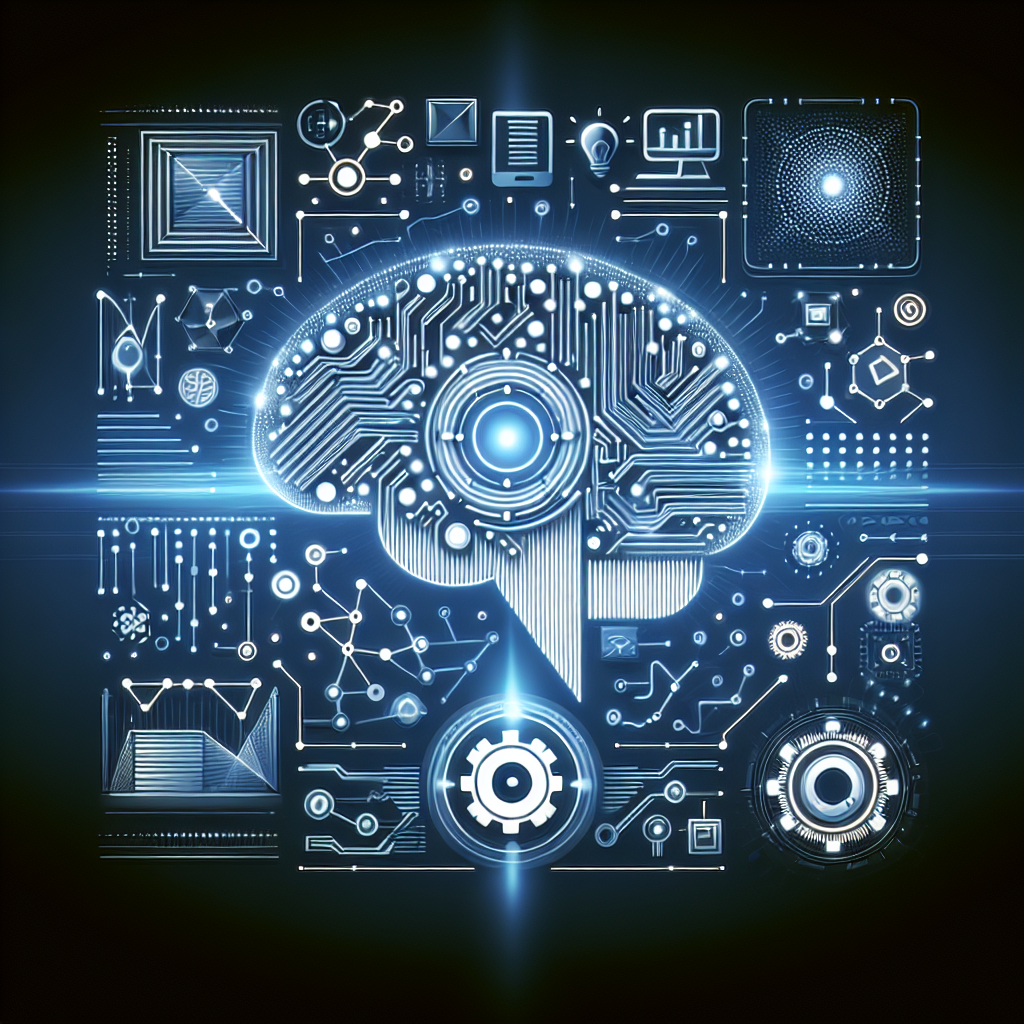Artificial General Intelligence (AGI) is the ultimate goal of AI research and development. AGI refers to a type of machine intelligence that possesses the ability to understand, learn, and apply knowledge in a way that is indistinguishable from human intelligence. While current AI systems excel at specific tasks, such as image recognition or natural language processing, they lack the flexibility and adaptability of human intelligence. AGI seeks to bridge this gap by creating machines that can reason, plan, and solve problems across a wide range of domains.
The quest for AGI has been a long-standing goal of the AI community since its inception in the 1950s. Over the years, researchers have made significant progress in developing AI systems that can perform complex tasks with a high degree of accuracy. However, achieving AGI remains a formidable challenge due to the complexity and diversity of human intelligence. In this article, we will explore the concept of AGI, its potential applications, and the challenges that must be overcome to realize this goal.
What is AGI?
AGI is a form of artificial intelligence that is capable of performing any intellectual task that a human being can do. This includes tasks such as problem-solving, decision-making, and learning from experience. AGI systems are designed to be general-purpose, meaning they can adapt to new situations and learn new tasks without human intervention. This level of intelligence is often referred to as “strong AI” or “human-level AI.”
AGI differs from narrow AI, which is designed to perform specific tasks or functions. Narrow AI systems, such as voice assistants or self-driving cars, are highly specialized and excel at a single task. In contrast, AGI systems are designed to be versatile and flexible, with the ability to learn and apply knowledge across a wide range of domains.
The development of AGI has the potential to revolutionize virtually every aspect of society, from healthcare and education to finance and entertainment. AGI systems could assist with complex decision-making processes, accelerate scientific research, and automate tedious tasks. However, achieving AGI poses significant technical, ethical, and societal challenges that must be carefully considered.
Applications of AGI
The potential applications of AGI are vast and diverse, encompassing a wide range of industries and domains. Some of the key areas where AGI could have a transformative impact include:
1. Healthcare: AGI systems could analyze medical data, diagnose diseases, and recommend treatment plans with a level of accuracy and efficiency that surpasses human capabilities. This could lead to improved patient outcomes, reduced healthcare costs, and more personalized care.
2. Education: AGI systems could personalize learning experiences for students, adapt teaching methods to individual needs, and provide real-time feedback to educators. This could enhance student engagement, improve academic performance, and democratize access to quality education.
3. Finance: AGI systems could analyze market trends, predict financial risks, and optimize investment strategies with a level of precision that surpasses human traders. This could lead to more efficient markets, reduced volatility, and increased profitability for investors.
4. Robotics: AGI systems could enable robots to perform complex tasks in unstructured environments, such as manufacturing, logistics, and healthcare. This could lead to increased productivity, improved safety, and enhanced quality control in various industries.
Challenges of AGI
Despite the potential benefits of AGI, there are several challenges that must be addressed before this goal can be realized. Some of the key challenges include:
1. Technical challenges: Developing AGI requires advances in a wide range of AI subfields, such as machine learning, natural language processing, and cognitive science. Researchers must overcome technical hurdles, such as scalability, interpretability, and robustness, to create AGI systems that are reliable and trustworthy.
2. Ethical challenges: AGI raises ethical concerns related to privacy, security, bias, and accountability. Researchers must ensure that AGI systems are designed and deployed in a responsible manner, with safeguards in place to protect individuals and society from potential harms.
3. Societal challenges: AGI has the potential to disrupt labor markets, exacerbate inequality, and reshape social norms. Researchers must consider the societal implications of AGI and work to mitigate potential risks, such as job displacement, social unrest, and cultural erosion.
FAQs
Q: How close are we to achieving AGI?
A: While significant progress has been made in AI research and development, achieving AGI remains a distant goal. Researchers continue to work on advancing AI technologies and addressing key challenges, but it is difficult to predict when AGI will be realized.
Q: What are the potential risks of AGI?
A: AGI poses several potential risks, including job displacement, security vulnerabilities, bias in decision-making, and misuse of AI technologies. Researchers and policymakers must address these risks proactively to ensure that AGI benefits society as a whole.
Q: How can we ensure the responsible development of AGI?
A: Responsible development of AGI requires collaboration between researchers, industry stakeholders, policymakers, and the public. Establishing ethical guidelines, promoting transparency, and fostering dialogue on AI ethics are essential steps to ensure that AGI is developed in a responsible and ethical manner.
In conclusion, AGI represents the ultimate goal of AI research and development, with the potential to revolutionize virtually every aspect of society. While achieving AGI poses significant challenges, the benefits of this technology are vast and diverse. By addressing technical, ethical, and societal concerns, researchers can work towards realizing the promise of AGI in a responsible and ethical manner.

